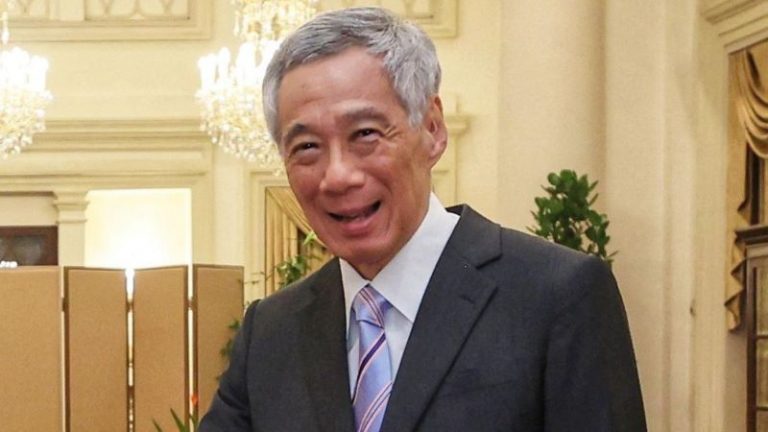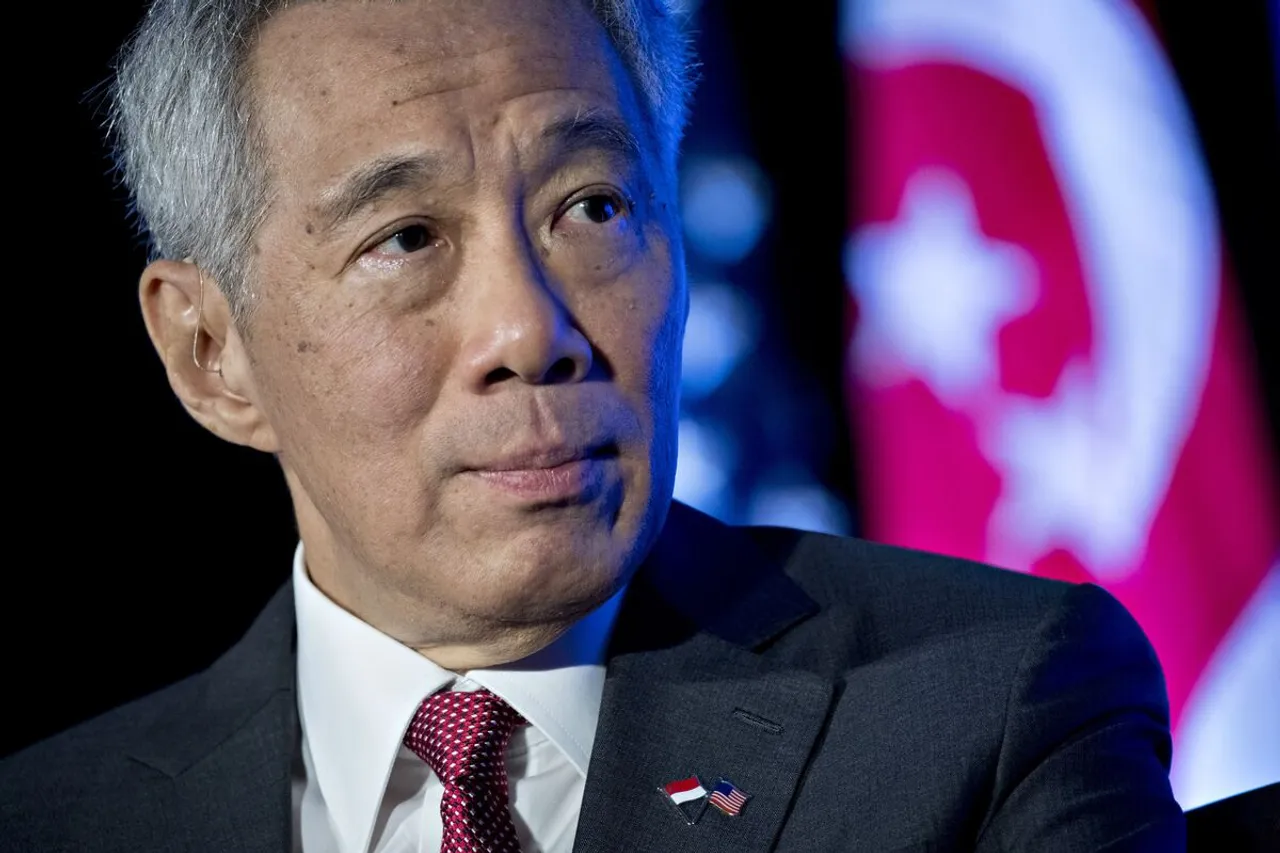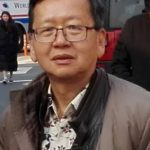
PM Lee Hsien Loong went on damage control mode to restore public trust in the government and party. But questions have been raised about the slip in the high standards set by founder Prime Minister Lee Kuan Yew
By Ivan Lim
Will the House of Lee stay unscathed after the ruling People’s Action Party (PAP) was rocked by a series of political peccadilloes, including corruption charges against a minister?
The political edifice that Mr. Lee Kuan Yew, Singapore’s first Prime Minister, built on a rock-solid foundation of personal integrity, public service and incorruptibility has come under scrutiny amid public disquiet over the dramatic turn of events.
In early May, the PAP government was jolted by an opposition expose that two senior ministers – Mr. K.Shanmugam,64, (Home Affairs & Law), and Dr. Vivian Balakrishan,62 (Foreign Affairs) — had rented two state-owned bungalows under circumstances that caused disquiet. Did they receive preferential treatment? Was there a conflict of interest? These were among issues alluded to by the opposition Reform Party leader Kenneth Jeyaretnam. The colonial-era black and white properties located in the exclusive wooded vicinity of Ridout Road were managed by the Singapore Land Authority, which comes under the Ministry of Law.
In mid-July, the Speaker of Parliament, Mr. Tan Chuan-Jin, 54, resigned over an extra-marital affair with fellow Member of Parliament, Ms. Cheng Li Hui, 47. He also resigned as MP and as PAP official. Mr. Tan had also been censured for unparliamentary language, calling the Workers Party lawmaker, Mr. Jamus Lim, 47, a “fXXking populist” on a hot mic during a debate on support for lower-income Singaporeans.
A bigger shock followed when Transport Minister S. Iswaran, 61, came under probe by the anti-corruption watchdog CPIB. He was placed under arrest and suspended from his ministerial and MP duties pending the outcome of the graft investigations.
The succession of controversies tested the resolve and mettle of Prime Minister Lee Hsien Loong, 71 – son of Mr Lee Kuan Yew who died in 2015 – as he moved into damage control mode in facing the worst crisis facing his administration to date.
Tackling the Ridout saga, he appointed Senior Minister Teo Chee Hean,69, to conduct a review of the rental process. He also directed the CPIB to carry out a separate probe into the conduct of the two ministers.
The outcome was Mr. Teo and CPIB found no evidence of corruption or criminal wrong-doing by the two ministers concerned.
 However, critics argued that minister-led inquiry was akin to “ownself checking ownself”. An independent review led by a high court judge would have been more credible.
However, critics argued that minister-led inquiry was akin to “ownself checking ownself”. An independent review led by a high court judge would have been more credible.
On dealing with the removal of the Speaker Tan Chuan-Jin, Mr. Lee was seen by some observers as showing hesitancy. Despite knowing the affair in 2020, he did not act, saying he wanted to give him time to end his affair with Ms. Cheng. He finally acted, he said. When the duo persisted with their inappropriate liaison. Ms. Cheng also quit as MP.
It was noted that in 2012 Parliament Speaker Michael Palmer resigned without delay over an extra-marital affair with a Peoples’ Association staff member. As regards Mr. Iswaran’s graft probe, Mr Lee said he gave the CPIB the go-head to investigate the Minister as the government has “zero tolerance” for corruption or wrong-doing by its leaders.
PM Lee, the third generation PAP leader, recognized the PAP had been politically embarrassed by the public furor over ministerial conduct and graft.
Undoubtedly, Singaporeans’ faith in the ruling PAP, if not the Prime Minister, had been shaken, political analysts noted.
True, PM Lee had not swept the scandals and graft case under the carpet.
But an apparent slip in the PAP’s high standards could be seen in the delay in cracking down on the Speaker’s wrong-doing and in the drip-dropping of information on the scandal and graft probes. This cast doubts about the government’s commitment to transparency.
The opposition leader in Parliament Pritam Singh rapped Mr. Lee for not being forthright with Singaporeans. He cited the Ridout rental saga in which the PM disclosed the CPIB investigation in June, a month after he had ordered the agency to look into the matter in May.
He urged Mr. Lee to consider appointing an “ethics adviser” of sorts to help put its house in order,
Taking the rap in his stride, yet mindful that the public would be keen to see how he was measuring up to the founding creed of the PAP,PM Lee went out of his way to pledge he would “uphold standards and do the right thing”.
There was no two way about it, if “trust is maintained and the Singapore system continues to work well.”
He recalled Lee Kuan Yew diktat: “Remember, never let the system go corrupt. Never, never let that happen. Uphold standards, make sure that Singapore can work”
And he was following in the late PAP founder’s footsteps of acting “thoroughly transparently and applying the full force of the law”, such as the high-profile1986 prosecution of National Development Minister Teh Cheang Wan for corruption and his suicide.
“This is still how the PAP government deals with such cases. It’s not changed under my charge and it won’t (change) under my successor either.”
The “men in white” may well contend that they should be judged not on what had taken place but on how they dealt with the crisis. If so, the day of reckoning may come soon – in a snap general election to capitalize of the election of President Tharman Shanmugaratnam, former Senior Minister and PAP Member of Parliament on Sept 1 as well as the late Lee Kuan Yew’s 100th anniversary celebrations — or by November 2025 when the government’s five-year tenure ends and it has to go to the people for a fresh mandate. (Elder statesman Lee was born on 16 September, 1923).
_____________
 Ivan Lim is a senior journalist of Singapore. He is also the former President of Korea-based Asia Journalists Association (AJA)
Ivan Lim is a senior journalist of Singapore. He is also the former President of Korea-based Asia Journalists Association (AJA)